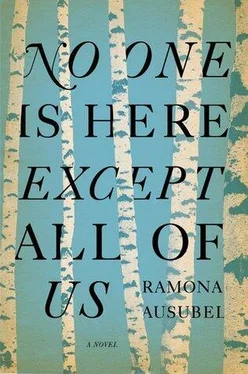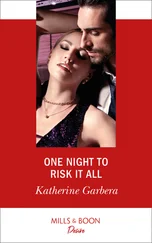Solomon was twice his old size, and his name, like his new father’s, was Johan. He chopped enough wood to keep two families warm. He washed his face in nearly boiling water and ran back and forth across the fields, tearing a path. He kissed his parents good-night and good-morning. At the arrival of the letter he read the words and said, “I remember everything.”
Johan opened a drawer where he kept his brother’s remains, brought to him by the farmer, who returned without me from the train, saying, “If you swear to love me, I will allow you the memory of your old life.”
With string and nails, Johan built his brother back. He came out short and there were small bones that he did not know what to do with, so he put these in a pouch and hung it around the wrist of the puppet. The baby’s skull was never found, but instead of leaving him headless, Johan attached the small skull of a bird he had discovered one morning on the floor in the kitchen. The puppet hung from strings in the light of the late morning. His beak was yellow and his skeleton was bright white. When he was moved, everything clanged and rattled.
Johan made him dance. He made him jump.
He took the note I had written to him when I left, the note he tucked into the cave of his hand and held there until it got warm and soft, the note he had read so many times each word felt like a part of his own body.
Solomon , it said, Milk, Wheat, Baby, Farmer, Home, Stars, Stars. You survive this. I know for a fact. Mother, Remember. Johan added some new words. I am all right. I am alive. I do not remember the prayers but I pray them anyway. Mother, mother. Solomon.
He tucked the note into the pouch. “Beautiful Baby,” Johan said. “You have an American sister. I have more parents. I know how to multiply one number by another. I have so many stories to tell you.”
He went to the farmer and said, “I have a new sister in America.”
“Just now?”
“Just now.”
The farmer counted the months back in his head. “I have a new daughter in America.” He grinned.
“You do?” Johan asked, uncertain.
“She’s alive?”
“She’s alive.”
“Good Father,” the farmer said.
Johan and his father walked outside to chop wood. Here, the puddles left by rain, which put mud on boots. Here, a patch of snow shaded by enough heavy brush to have missed any sunlight. The trees were unburdened by greenery, just smooth, naked arms, no waxed leaves to hang in one another’s eyes. The wheat was shaved, making the distances visible. Everything, even the farthest-off places, existed. The view ahead was endless.
The dutiful postman arrived at the thorny place where the stranger used to wait. Her stump was empty and there were no boot prints in the sloppy ground. The thorny bushes had been cut away and a road led onto the spit of land. Here was a line the postman had not crossed in years, a barrier that had kept two elements from meeting. What fizz, what explosion might occur now that they were mixed? Curiosity mashed around in his chest, and duty allowed him to follow it without admitting his reason.
There was disappointment as the postman watched houses — plainly built of wood and stone — arrange themselves as a village. He realized now he had expected something stranger. Caves, tree houses, a village in miniature. This place did not seem like a secret worth keeping — it was the same as all the other towns he delivered mail to, only sunken. And just as in hundreds of other villages, the end had come. The postman could see the doors hanging from their hinges, the windows smashed in. At one house, he peeked through the broken pane at an empty room. Moved out of, evacuated. The smell of mold made him gag, and he found the same thing in other houses. Like the secret the village’s mysterious people had been keeping was that they could disappear. Close their eyes, tuck their chins and be gone. Everything they had ever touched, any evidence that they had walked or slept, vanished. Maybe, he thought, they had been ghosts all along.
The postman dropped the envelope with the folded handkerchief at the doorstep of the cabbage picker’s house, though there was no doorstep and neither was there a door, nor did those people inhabit bodies able to turn knobs and let the daylight in. The house was a wrecked ship. The walls were devoured. The package sat where it was placed and waited for the mud and the mold. It waited to be greened and browned. It waited for the ghosts to take it back into the earth.
The letter in Regina’s hands trembled with her. “Lena’s alive!” she croaked. All at once, the memory of those last days swelled in her.
When the screaming had risen up, and doors were pounded upon, the two women had looked at each other and blown out their lanterns. They had crawled into the little bed, wound themselves together and pulled a blanket over. The air was wooly and hot. Regina understood that her family was not going to be there when or if she came out. She understood that her trade had finally been negotiated: she belonged to this oak-limbed woman now, this mustard queen, in life or in death. She understood too that there were parts of her that were her parents, Moishe, me. Not similar to, but of. All that matter, traded over a life, was stuck.
The widow had been afraid, and she had grabbed Regina’s hand. There they had stayed, through the sound of yelling, quiet, then a sudden thunder of footfalls, gunshots, and yelling, and finally: endless, petrifying silence. All night, and on after.
Venturing out of bed only to open another jar and slice another loaf, Regina and the widow had inhabited the bed as two castaways on a remote island. For days, they had lived on their stored-up creation, their tongues dimpled and puckered from the sour. They had begun to be sure they would live the rest of their lives like that, growing old imperceptibly, until one day when they died, their memories one unbroken day of waiting.
But one afternoon, a pair of giant Russians had kicked open their door and thrown light onto two women surrounded by empty, finger-scraped jars. The Russians had been thrilled, having come to liberate the village but believing until now that they were too late. Regina and the widow had had no way to know that this was not their end, but their salvation. They had cowered. The Russians had been tremendous, gargantuan, colossal — bigger than any dreamed-of men — and they were hungry. The very last jar of mustard had been eaten with their huge fingers and delighted mouths. “Beautiful mustard,” the Russians kept saying. “Gorgeous. We came to save you, but you saved us.”
“You need a bath,” one of the men had said. They had picked the women up in their arms as easily as a pair of babies. At the river’s edge, Regina and the widow had kept their underclothes on while, with an old enamel pitcher, the men had run water and their enormous fingers through the two women’s hair. The cool liquid had felt like a new life. Like they were being born.
“Pretty girls,” the Russians had said, clearly a little surprised at what the dirt had hidden. “Shall we go home?” they had asked.
“Home?” Regina had asked.
“If we are going to rescue you, you will have to come with us.”
Dried and in clean dresses, Regina and the widow had packed a bag of coins and surveyed the room for anything else they wanted. Spoons, blankets, rags of clothes? They had had no idea where they were going, what life was waiting to be lived there. They had left it all. The widow had had her one friend and her memorized recipe. She had cleared her throat, preparing to speak, which was not something she was sure she still knew how to do. “Please call me Zelda,” she had said to Regina and the two giants.
Читать дальше












